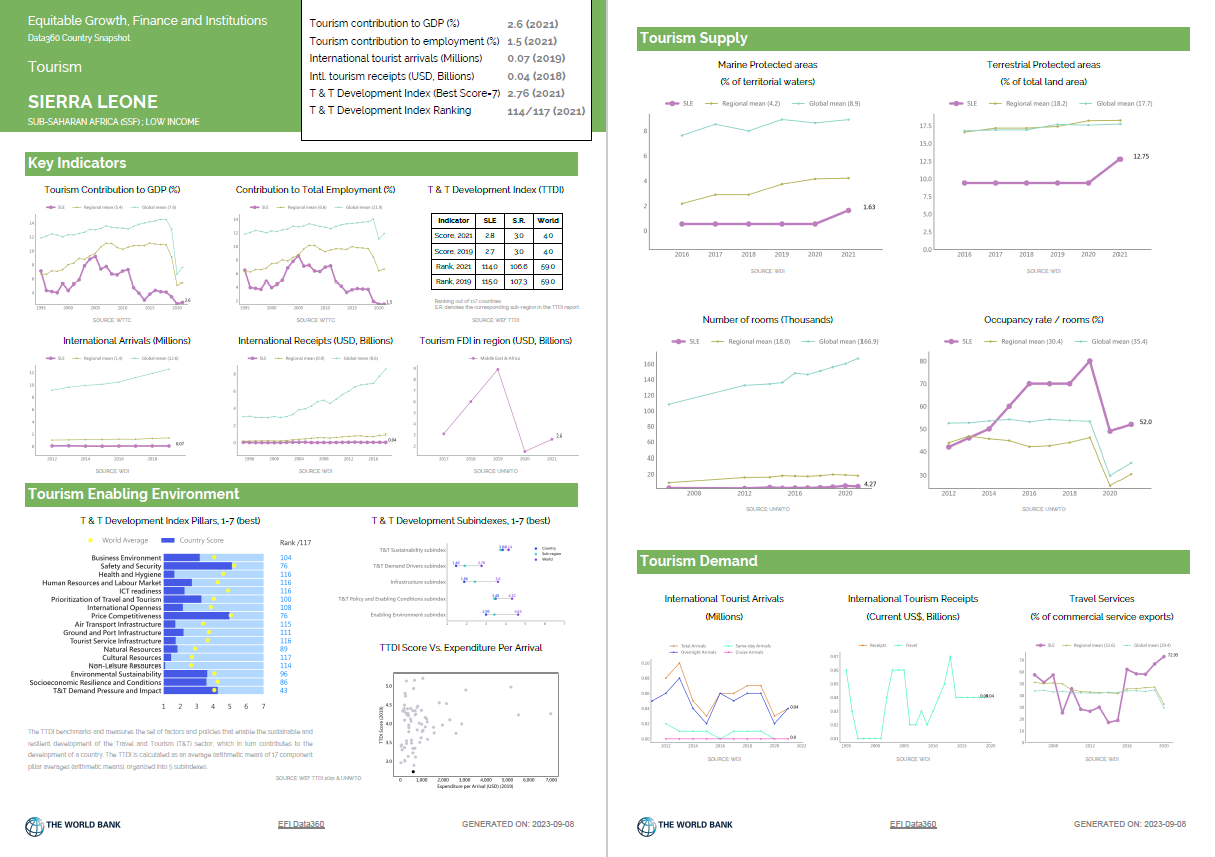Tourism data and statistics play a pivotal role in informing and shaping effective policymaking within the tourism sector. Tourism data can help policymakers better allocate scarce resources, understand visitor trends and preferences, prioritize markets and destinations, and monitor environmental and social impacts.
However, many emerging destinations operate in a severely data-poor environment and the data divide is growing. Several factors contribute to this gap, including limited financial and human resources, inadequate infrastructure for data collection and analysis, reliance on outdated methodologies and instruments, and a lack of prioritization for data-related initiatives.
The urgency to bridge this gap has increased due to recent shocks and global crises. The COVID-19 pandemic was a clear example of tourism industry disruption that benefitted from just-in-time data. Now, rapid technological advancements, sustainability concerns, and changing demographics highlight the vital role data plays in adapting to an evolving industry landscape and enhancing visitor experiences.
The WBG is working to bridge the data divide with the newly launched Prosperity Data360 portal. The portal centralizes key tourism statistics and offers downloadable country-specific tourism indicator datasheets. For most countries, such as the case of Sierra Leone (Figure 1), users can access comprehensive information on the evolution of key tourism indicators and compare them with regional and global performance benchmarks.
Figure 1. Sierra Leone’s EFI Data360 Downloadable Tourism Snapshot Overview

In addition to Prosperity Data360, FCI is combining traditional and non-traditional data sources to respond to growing demand. FCI’s Tourism Watch, for example, is a quarterly bulletin that uses, among other indicators, OAG’s aviation data to monitor tourism sector growth trends, outlook, and the impacts of crises such as the Ukraine war on the sector. On the other hand, non-traditional machine learning tools are being used to harness big data from thousands of online travel reviews, searches and listings, informing the Comoros Country Economic Memorandum and the Uganda Economic Update.
Through partnerships with private sector stakeholders, such as tourism businesses, industry associations, and research organizations, the WBG is also working to enhance data collection efforts. A World Bank-Visa partnership analyzes aggregated and anonymous spending insights to identify high-value segments and spending patterns and monitor progress in the diversification of tourism markets. A partnership with the Tourism Action Coalition for a Sustainable Ocean (TACSO) lead to the design and launch of the Blue Tourism Resource Portal, designed to help tourism decision makers, managers, and operators make their destinations sustainable and resilient. In Benin, WBG financing the improvement of tourism statistics systems by piloting Tourism Satellite Accounts. In Peru and the Gambia, the WBG is conducting an extensive assessment of current practices in lodging surveys, and providing recommendations to improve response rates and enhance performance, in alignment with international standards set by organizations like the UN World Tourism Organization (UNWTO).
Some projects in destinations with traditionally scarce tourism data incorporate multiple data initiatives As part of an ongoing study in the Caribbean, the WBG is leveraging new data technologies, tourism job quality analysis, domestic value added, and supply- and demand-side segment stock-tacking, big data and web scraping.
The significance of tourism data and statistics for policymaking cannot be overstated. New and innovative data and better tools empower policymakers to make informed decisions, allocate resources effectively, tailor strategies to visitor preferences, prioritize markets and destinations, and monitor environmental and social impacts. In a rapidly evolving tourism landscape, data-driven policymaking is essential to promote sustainable growth, enhance visitor experiences, and safeguard the well-being of destinations and communities.
If you have any questions, please contact the Tourism team at tourism@worldbankgroup.org.









